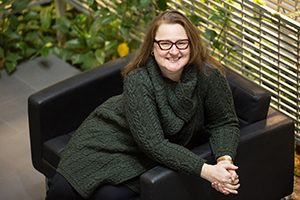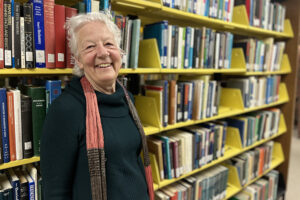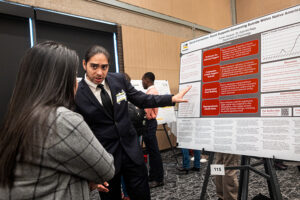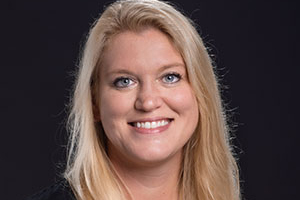Melinda Kavanaugh’s husband’s family first noticed that there was something unusual happening to their mother, the cook of the house, when she began serving dinners that tasted different.
Like many families, they didn’t seek medical help until small changes gave way to bigger problems.
The same is often true in Latino or African American families, which are both harder hit by dementia than white families.

“In these communities, home caregiving of a family member with dementia lasts longer for a variety of reasons, including access to care,” said Kavanaugh, a UWM associate professor of social welfare.
With support from the National Institute on Aging, Kavanaugh and several community partners are launching a two-year project that will help Latino and African American families better avert “crisis points,” which are potentially dangerous incidents such as leaving the stove unattended or getting lost outside the home.
Their aim is to collect representative examples of the early indicators of advancing memory loss, and head off disaster by providing this information to families and health care providers of individuals who haven’t reached a crisis point yet.
The researchers will consult with professional caregivers, social workers and the family members – including the youth who often care for affected family members after school while parents are still at work. Their observations have not been integrated in previous work.
“You can see a family that is in crisis,” Kavanaugh said. “They may not recognize it because, to them, it’s normal.”
The project came about through longstanding relationships Kavanaugh has with community groups such as the United Community Center, Alzheimer’s Association and the Milwaukee County Department on Aging.
There are cultural aspects to this project, she added. People are reluctant to seek a diagnosis for fear of the stigma. For many in the African American community, engaging with medical practitioners is fraught with distrust. And language can be a barrier for Latinos.
“From this study, we’ll have details of how we can intervene in populations that already are not getting the care they need,” she said.
More than 100,000 people in Wisconsin are living with dementia. Research has indicated that Alzheimer’s disease strikes Latinos 1.5 times more often than it does their white counterparts. Among African Americans, the disease occurs twice as often.







